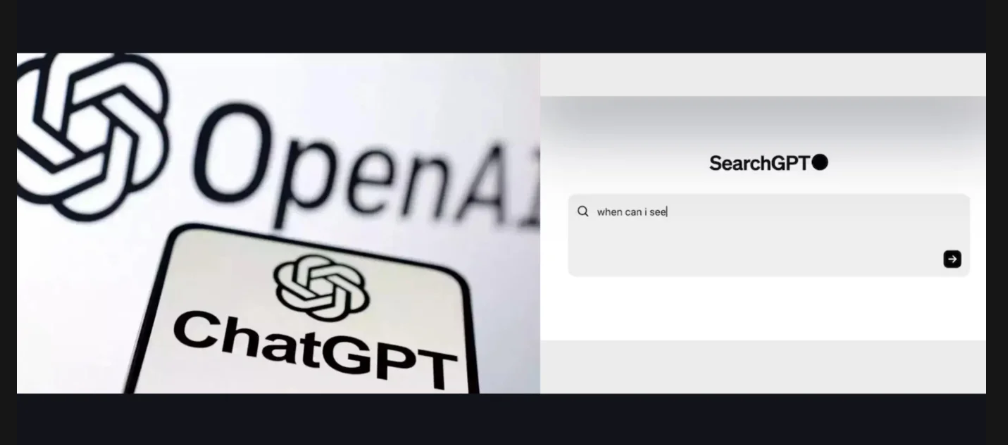OpenAI Launches SearchGPT: A New Era in AI-Powered Search (GS Paper 3, Technology)

Introduction
- On July 27, 2024, OpenAI, the company renowned for its groundbreaking work in artificial intelligence, introduced SearchGPT—a new AI-powered search engine poised to transform the landscape of internet search.
- This move represents a significant challenge to Google's dominance in the search market, valued at $200 billion, and highlights the ongoing evolution in AI technology.
SearchGPT: A Glimpse into the Future
- OpenAI’s announcement of SearchGPT signals a potential shift in how users interact with search engines.
- Currently, the company is testing a prototype of SearchGPT’s new features, which aim to combine the strengths of advanced AI models with real-time information from the web.
- This integration promises users quick, accurate answers without the need to sift through numerous search results.
- The prototype phase is still in progress, with access limited to a select group of users.
- However, OpenAI’s long-term vision includes integrating these search capabilities into their flagship model, ChatGPT, suggesting a future where AI and search functionalities are seamlessly blended.
The Promise of AI-Powered Search
- SearchGPT heralds a significant advancement in search technology.
- By leveraging AI to provide fast and relevant answers, it aims to streamline the search process, potentially transforming how we access and interact with information online.
- This shift could lead to a more efficient search experience, where users receive precise answers quickly, thereby reducing the need to navigate through multiple search results.
The AI Revolution in Search: A Broader Perspective
- Since the launch of ChatGPT in 2022, the application of generative AI in various tech domains has been explored extensively.
- AI's ability to generate answers and analyze large volumes of content makes it a natural fit for enhancing search technology.
- Competitors like Perplexity and now SearchGPT are emerging as potential disruptors in the search engine market, promising more intuitive and user-friendly search experiences.
The Incumbent’s Dilemma: Traditional Search Engines Face Challenges
- Despite advancements, traditional search giants like Google and Microsoft have been relatively slow in adopting AI-powered search features.
- This hesitancy is partly due to concerns about how AI integration might conflict with existing business models, particularly Google’s significant revenue derived from search advertising.
- Google currently dominates the search market with an 80 percent share.
- This market leadership may be under threat from new entrants like SearchGPT, which could challenge Google’s supremacy.
- The shift towards AI-powered search might reduce the reliance on traditional advertising revenue, a critical component of Google’s business model.
The Race for Innovation: Google’s Response
- In response to emerging competitors, Google has started integrating AI capabilities into its search functions.
- At Google I/O 2024, the company unveiled new AI features aimed at enhancing search efficiency, including AI-generated summary answers.
- The introduction of SearchGPT is likely to spur further innovation within Google, as it seeks to maintain its competitive edge.
The Potential Impact of SearchGPT
For SearchGPT to challenge Google’s monopoly effectively, it must achieve two key objectives:
- Revolutionize Search Efficiency: SearchGPT needs to significantly improve the search experience by delivering faster and more accurate results.
- Shift User Preferences: The new search engine must persuade users to move away from Google, which has established itself as a trusted search platform.
Enhanced Capabilities and Publisher Relations
- SearchGPT aims to offer enhanced conversational capabilities, providing real-time information from the web with clear links to relevant sources.
- OpenAI’s approach includes partnering with publishers to manage how their content appears in search results, offering more control and visibility.
- Furthermore, OpenAI emphasizes that SearchGPT’s development is distinct from the training of its generative AI models.
- This separation ensures that sites can be included in search results even if they opt out of generative AI training, addressing concerns about content management and AI training overlap.
Conclusion
- OpenAI’s launch of SearchGPT marks a significant milestone in the evolution of search technology.
- By integrating advanced AI capabilities with real-time web information, SearchGPT aims to redefine the search experience, potentially challenging Google's dominance in the market.
- As the search landscape evolves, the success of SearchGPT will depend on its ability to enhance search efficiency and attract users away from established platforms.
- The coming months will be crucial in determining whether SearchGPT can make a lasting impact on how we access and interact with information online.


